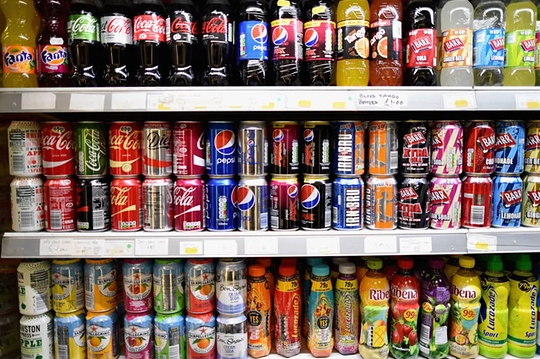

Sophie Mazzier examines how the government might go about taxing our sweet tooth
Despite the fact that the deadline for submitting one’s 2014/15 tax return (and paying any tax due), penalty free has now passed, and Peter Barron, head of communications at Google, saying there had been no ‘sweetheart deal’ in relation to Google’s settlement with HMRC: ‘the government sets the law, HMRC enforces it and we follow it’, I have been wondering whether the reference to ‘sweet’ is subliminal. Will the government now officially review its strategy about ‘sugar tax’? And if so how could be it be reported, collected or enforced?
Taxes are generally either intended as a behaviour-deterrent or a revenue-raiser (but not both) – this is clearly an example of the former and tends to support the view held by some that tax in general is a moral issue.
And so, with all those self-assessment tax return form boxes still a very recent memory, I have visions of redesigning the form for ‘sugar tax’ reporting, compliance and penalties.
How many donuts have you consumed in the past year?
‘How often do you choose the “reduced sugar” or “artificial sugar” option [although many years ago, working as a waitress (not in a cocktail bar but in a well-known pizza chain), it never failed to amuse me when calorie conscious customers ordered diet beer or “lo-cal” soft drinks to go with the full-fat cheese and peperoni pizzas!]
How much allowable exercise do you wish to claim against your sugar intake?
Exemptions might be allowed for various religious festivals (akin to the charity exemption) and additional credit given for abstinence from alcohol.
Perhaps the computation page (completed for you if you submit your return online before the deadline) would calculate the difference in your weight/BMI/waistline between 6 April 2014 and 5April 2015…..and then tax levied by reference pounds (and ounces).
And what about the penalties for those who are non-compliant? Named and shamed with photos in the press? For the serious sugar delinquents, incarceration at a health farm or a dawn raid by a personal trainer maybe. As I ponder, it is becoming increasingly apparent that this is one form of avoidance or evasion (and just to be clear, I am referring to sugar and not to the tax) that the government would encourage.
But there again, perhaps I should remove my tongue from my cheek and replace it with a boiled sweet while I can.
Sophie Mazzier is Counsel at boutique private wealth law firm Maurice Turnor Gardner LLP.






